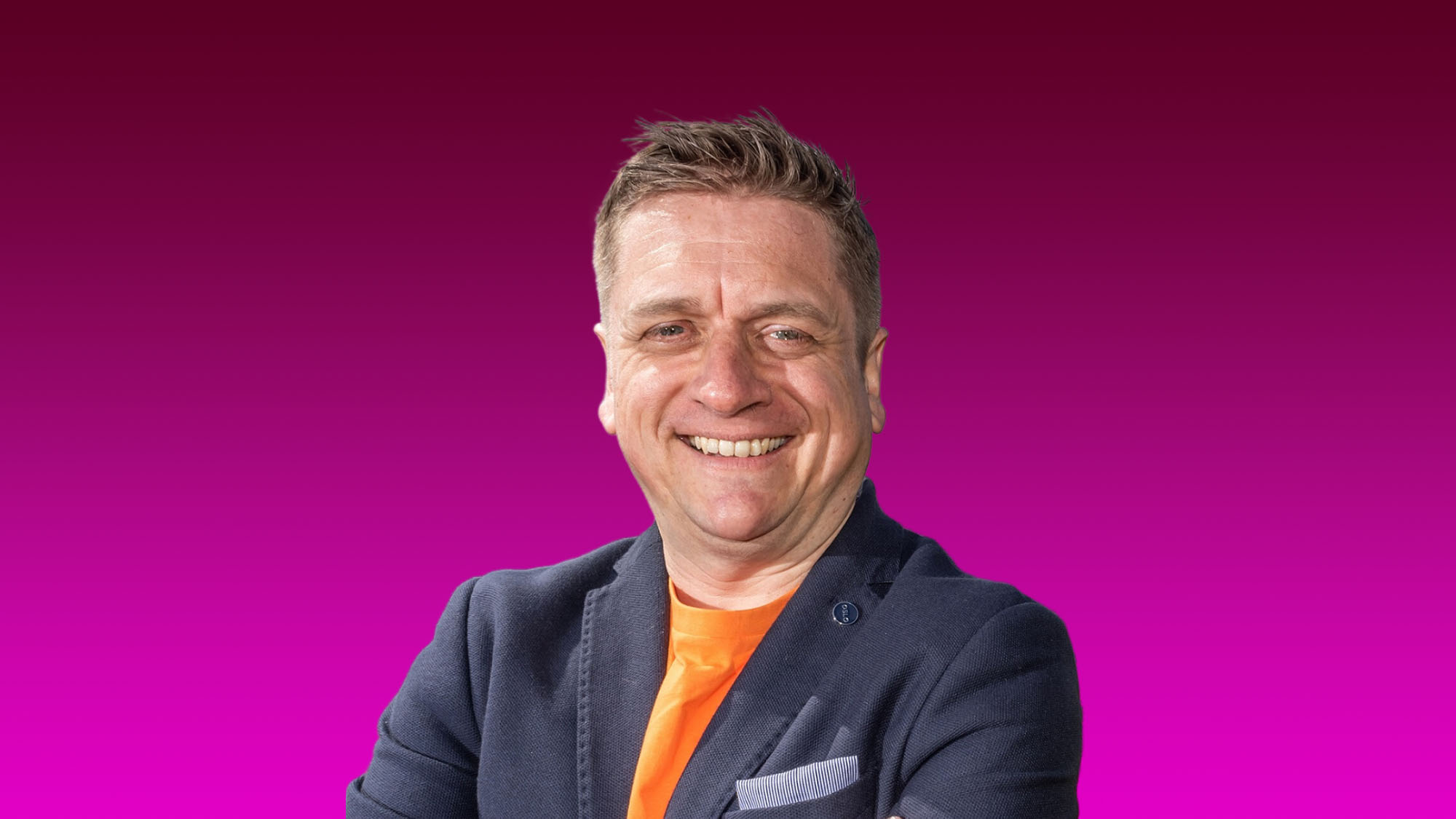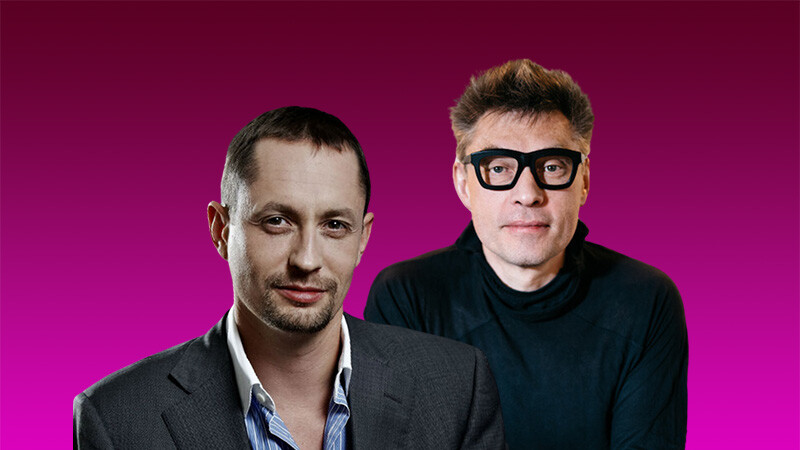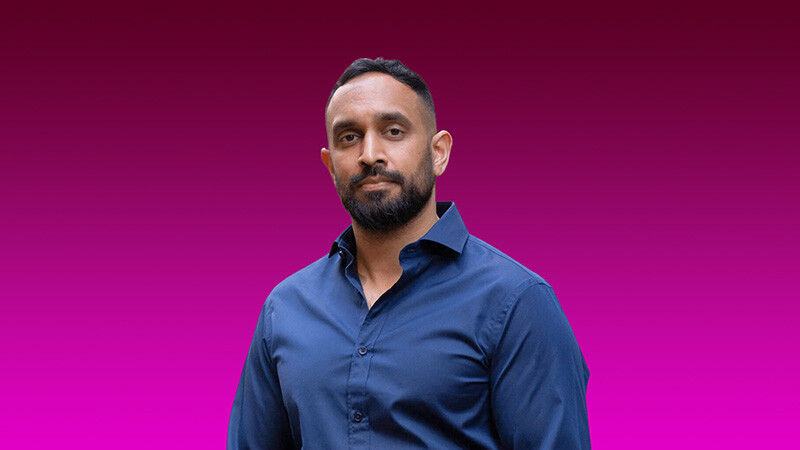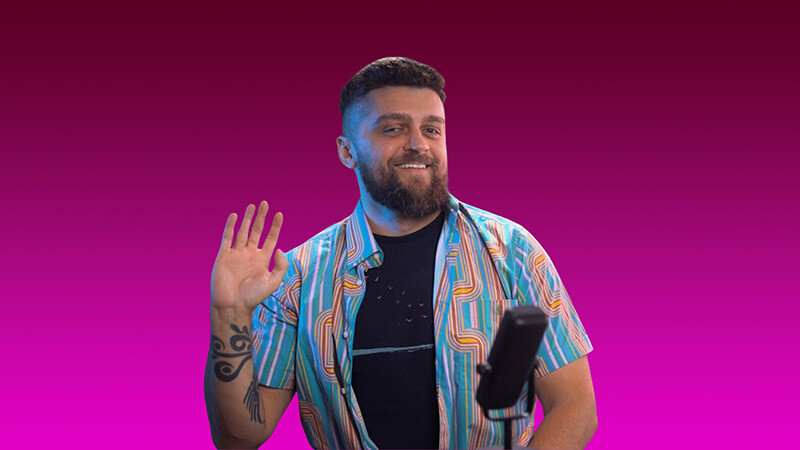FounderMetrics: Boris Dyakonov & Eduard Panteleev
On episode six of FounderMetrics S2, our founder and CEO, Ifty Nasir, interviews the entrepreneurial duo, Boris Dyakonov and Eduard Panteleev.

Joining Ifty Nasir on the latest episode of FounderMetrics is Simon Paine, the trailblazer behind the Rebel Business School.
Simon tells Ifty about his passion for social justice and his effort to change the entrepreneurship game by making business more accessible.
Keep reading to get the key takeaways or go right ahead and listen to the episode now.
Growing up in my family, being a policeman was actually the family business! My dad was a cop and he told me that he didn’t want me to join the police.
He said, “I’ve worked hard to give you opportunities, I want you to find your own way, do your own thing.” But, like most teenagers, I had a bit of a rebellious streak, so of course, I only wanted to do what he told me not to do.
So, I joined the police, and my dad was upset about it at first but then he was happy about it. Then, when I left the police to start my own business, he was upset about it and now he’s happy again. We’re all good now but it’s been a bit up and down.
Eventually, I left the police and I was working in one branch of a government-funded business advisory service called Business Link. And that’s how I met my friend – and now business partner - Alan.
He and I became friends after we had an experience that was really eye-opening for me. But before I tell you the story, there are a few things you need to know about Alan.
So, Alan is white, he has a private school education, he’s middle-class, his dad is a successful entrepreneur, and Alan had a wife who was making six figures. He’s a resourceful guy, he has a supportive family, he has great business ideas, and he has cash in the bank.
So, he came to Business Link with his idea and his experience with that service was so negative that it nearly put him off his entire business plan altogether.
Now if the traditional approach to starting a business is putting this guy off, what's it doing for everybody else?
I actually met Alan because he sent a three-page, handwritten letter of complaint to BusinessLink and I was the guy assigned to meet with him and talk to him about his complaint. During that meeting, we became friends partly because we both recognised that starting a business with a business plan isn’t right for most people.
Starting a business with a business plan isn't right for most people.
His experience with being put off by BusinessLink really stood out to me because if the traditional business process is scaring off that guy, how intimidating must it be to everybody else?!
The more we thought about that, the more obvious it became that we needed to fix that lack of accessibility.
Having recognised that the traditional business plan process was inaccessible for most people, Alan and I decided to build a company that reversed the process. Instead of starting with a business plan, we created a model that said ‘Let’s END with a business plan and START with a sale.’
We’ve also been passionate about building debt-free startups from the beginning because I think that’s a really vital element of entrepreneurial accessibility.
For example, some of the ethnic minorities we’ve worked with in London won’t go anywhere near a bank to ask for startup capital because they already know what the answer’s going to be.
So, there are loads of people who think that getting startup cash for a new business isn’t possible for all kinds of reasons.
It could seem impossible from a psychological perspective - due to perceived bias or barriers in the business world - or it could seem impossible practically - due to the belief that it takes money to make money and a lack of access to resources.
Because those mindsets and belief systems are two of the biggest barriers for new entrepreneurs, we felt we needed to start by radically shifting the perspective of entrepreneurs who feel let down from the beginning.
So, we started with the goal of changing the mindset and communicating the message that anyone can build a business.
Since then, we’ve evolved to build on that message by saying that anyone can build the life they want for themselves, even if starting a business is only one part of that.
Anyone can build a business.
We’ve also created a Rebel Finance School to change the mentality surrounding personal and professional finances. And the Rebel Business School, our initial two-man endeavour, has grown to over 22,000 employees.
A company like Rebel Business School is definitely unique when it comes to measuring success because we don’t really use the traditional metrics or KPIs that other businesses do.
So, because we put most of our effort and energy into measuring social impact, we’ve kind of had to reinvent the standards for measuring success to create metrics that accurately measure our results.
In the early days, that looked very different from the way it looks now because we were sending out over 400 emails to every social housing authority in England, trying to partner with them and make some connections.
And in those days, I measured success in a really unconventional way! I would take an Irish Coffee glass and some of my kids’ Moshi Monsters and every time I received a meaningful email in reply, I would put a Moshi Monster in the glass and give myself a reward when the glass was full!
I also had a rule for myself that I could only count emails which were genuine, real replies that would take the business somewhere. They couldn’t be out of office emails, they couldn’t bounce back, they couldn’t say, “Please take us off your email list.” They had to land.
And out of those 400 emails we initially sent, we only got 60 responses. Everyone else pretty much ignored us and even the majority of those 60 replies were worthless. Most were ‘out of office’ or, "Please take us off your list." Only about 25 out of 400 were from people who were interested in working with us.
Those can be pretty disappointing results but I think it was easier to keep myself motivated passionate and engaged when I was using creative metrics like Moshi Monsters and Irish coffee to measure my success
We've had to reinvent the standards for measuring success.
But of course, the metrics have changed quite substantially since the early days, although we still try to be creative.
Today, we put most of our effort and energy into measuring our impact on the people who work with us.
For example, when someone comes to us for help building their own business, we like to start by assessing a few things like their confidence, their happiness, and their business skills.
Essentially, we’re asking questions that are framed around self-efficacy and we’re measuring their personal and professional growth between when they start and when they leave.
At the end, we also ask for things like, “What was your biggest lightbulb moment?” or “Tell us about your first sale” to help us measure their confidence and success through the Rebel Business School program.
We also look at things like background demographics. For example, 70% of our target demographic is female and 45% are ethnic minorities.
So, even though we are looking at some numbers in terms of demographics, we like to put those numbers into meaningful context by considering their stories, their experiences, and the difference between how they feel when they begin and how they feel when they leave.
I think measuring that impact - especially through the context of people who traditionally feel excluded from the standard process of starting a business - really makes our metrics more meaningful.
We also don’t like to measure success purely in terms of the destination. If we assess impact through the simple question of “Did they start their own business after leaving our program: yes or no?” then I think that really minimises the impact of what we do here.
Because although we do want to give people the tools to start their own businesses if they want to, at the core, our mission is about improving people’s lives.
Measuring social impact is more meaningful.
If they enrolled on a Rebel Business School course and left feeling more confident and more empowered with some new skills that improved their lives, that’s a win no matter what.
You'll find Simon’s episode and more on in all the usual places. You can also watch the interview in full on YouTube. Don't forget to like, subscribe and stay tuned for more FounderMetrics!

On episode six of FounderMetrics S2, our founder and CEO, Ifty Nasir, interviews the entrepreneurial duo, Boris Dyakonov and Eduard Panteleev.

In the second episode of this second season of FounderMetrics, Ifty Nasir interviews Raj Thiruchelvarajah. Raj is the CEO and co-founder of Hytro -...

From one podcast host to another! Ifty Nasir chatted with Biro Florin, the co-founder of Jexo and the host Misfit Founders podcast.